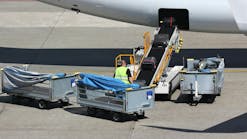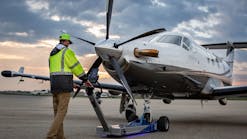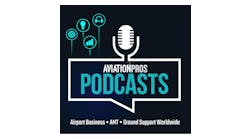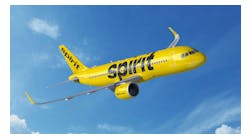Delta Air Lines Inc. CEO Gerald Grinstein sent a memo dated Tuesday to employees updating them on the company's financial situation. The memo, which was obtained Wednesday by The Associated Press, follows:
Internal Memorandum
Date: July 26, 2005
To: All Delta Employees
From: Jerry Grinstein, Chief Executive Officer
Subject: Delta's Second Quarter Results
Last week we announced Delta's financial results for this year's second quarter and, as many of you may know by now, we reported a net loss of over $380 million. (For the full financial details, view Delta's press release for the June 2005 quarter results at http://news.delta.com/; under the ''Links'' heading, click on ''Financial News.'') After all the hard work and sacrifice coupled with the great progress we've made under our transformation plan as a result, posting a large financial loss, though not unexpected, is still disappointing. For many of you, it also may be puzzling because other legacy carriers subject to equally high fuel prices reported modest quarterly profits. Whats going on?
Simply put, it is in large part a matter of timing and competitive market challenges unique to Delta.
First, timing: Remember, we are still in the process of implementing our transformation plan, which calls for the delivery of more than $5 billion in annual benefits by the end of next year, compared to 2002. Having delivered to date more than $2.7 billion in annual benefits, we are on track with that initiative and we continue to make good progress on the cost-cutting side. Our mainline cost per available seat mile (CASM), excluding fuel and special items, has been reduced by a remarkable 14.3 percent compared to the same period in 2004. But, because it takes time to implement some of the changes, we do not yet have the benefit of the plan's full savings to help offset the record-high fuel prices.
Second, competitive market challenges unique to Delta: The overlap with low-cost carriers in our markets is greater than any other network airline. Therefore, Delta is more susceptible to LCC pricing pressures. We currently cannot capture as much revenue per passenger, especially on the East Coast, as legacy carriers with a different LCC market-presence mix are able to do.
What are we doing to address our challenges?
In light of persistently high fuel prices, we recently reset the cap on SimpliFares and are intensifying our fuel conservation efforts. Having spent an astounding $1.1 billion in fuel in this year's second quarter alone (which is almost $400 million more than we spent this time last year), and because every penny increase in the average annual cost per gallon of jet fuel drives approximately $25 million in additional mainline fuel expense, based on our expected fuel consumption for 2005, efforts at every level of the company to save fuel and offset its cost make a difference.
We are aggressively pursuing ways to further reduce costs and increase revenue. Thanks to your sacrifices and to efforts such as the de-hubbing of Dallas/Fort Worth and Project Clockwork, we now have a unit cost structure that we expect will be the lowest of the network carriers this quarter and within striking distance of the low-cost carriers by the end of 2006. And, due to initiatives like SimpliFares, the realignment of our network, and an intensified focus on revenue management, our revenue per available seat mile (RASM) on a year-over-year basis has been improving steadily. In fact, while RASM began trending downward year-over-year in January, it has improved every subsequent month in 2005. RASM turned positive during the second quarter, with the best improvement in June.
We also are addressing structural network issues that affect our revenue performance versus our competition. Working within the framework of our plan and with the assets we have, we are simplifying our airline and better utilizing our fleet, increasing international and point-to-point flying as quickly as we can reallocate and reconfigure aircraft, and building on our momentum to become even more productive and deliver even greater operational efficiencies. Through initiatives such as scheduling redesigns, we know these efforts work. For example, as of June 1, 2005, we have freed up the equivalent of 31 additional aircraft since last year for growth and fleet simplification.
And, importantly, together we are pushing for meaningful pension reform. Already this year, Delta has made payments of approximately $315 million for pension obligations, including $95 million in the June quarter. But in light of the significantly higher pension payments that loom ahead, legislation that can help make it more affordable for Delta to provide our employees and retirees with retirement benefits they've already earned is an important component of our transformation plan. I am particularly pleased that Senator Isakson, a co-sponsor of legislation designed to help us meet our pension obligations, as well as Representative Price and Representative Westmoreland, were able to join us at Deltas Atlanta headquarters on July 25th at an event to recognize the importance of pension reform. We thank these Congressional leaders for their efforts, and ask all of you to continue to make your voices heard in Washington.
In light of what we have accomplished together so far, there can be no doubt that Delta's transformation plan is delivering results. What is also clear is that it is not enough. The high price of fuel, the interest expense on our debt, and other factors have significantly outpaced our transformation initiatives and masked our progress. Clearly, more must be done, and be done quickly. We have always anticipated the need to expand Delta's plan, and we are doing just that. The senior leadership team is continuing to identify additional, innovative ways to get the most out of what our network and fleet have to offer. We'll be announcing changes to our fall schedule this week and other improvements, soon.
Maintaining our momentum is particularly important now because, as this quarter's financial results demonstrate, time is of the essence. Preserving sufficient liquidity meaning enough cash to run our operation, meet the financial covenants in our financing agreements, pay our bills, and protect our assets is crucial to our ability to survive and compete over the long-term. As many of you are aware, given our financial situation, there is renewed speculation about bankruptcy. We have been candid about the risk that a number of factors, some of which are beyond our control, will affect our ability to avoid a Chapter 11 filing. However, we are still working to pursue an out-of-court solution, even as we face increasing financial pressures. And no matter how we address our immediate financial challenges, our ability to survive and to compete over the long term will depend on the continued development and execution of a transformation plan for Delta that is designed to make us competitive in today's challenging marketplace and strong and profitable in the future. Over the long-term, I believe that to be an achievable goal.
In the midst of our transformation, the top priority for all of us must be an ongoing commitment to take care of our customers. Many of our changes are designed to improve the customer experience from refurbishing cabins to simplifying our frequent flyer program to improving on-time reliability and reducing airport congestion. During this time of uncertainty, you are stepping up and contributing, which is the single most important thing you can do. The marks Delta receives from passengers for friendliness, helpfulness and enhanced experiences on-board and at-the-gate continue to improve affirming what I know to be true: Delta people make the difference.
I have great faith in the Delta team, which is unquestionably the best in the industry. With our senior leadership now realigned and strengthened to better and more quickly carry out our strategic objectives, this company is poised to meet the challenges with speed, decisiveness and flexibility. I am confident that, by working together, Delta people at every level will continue to rise to the occasion with the same spirit and determination that has made this airline great throughout the past 76 years.
Jerry Grinstein




